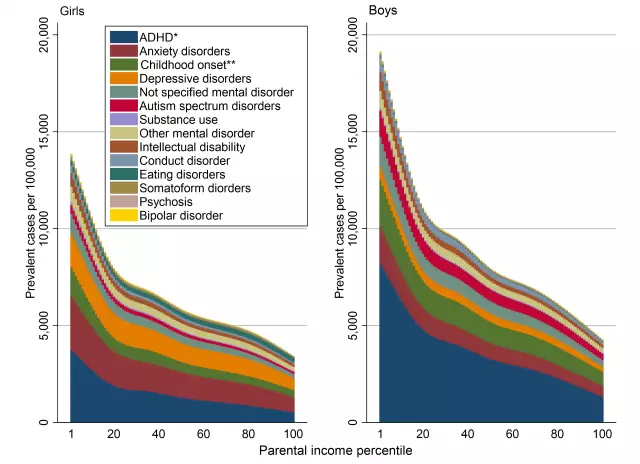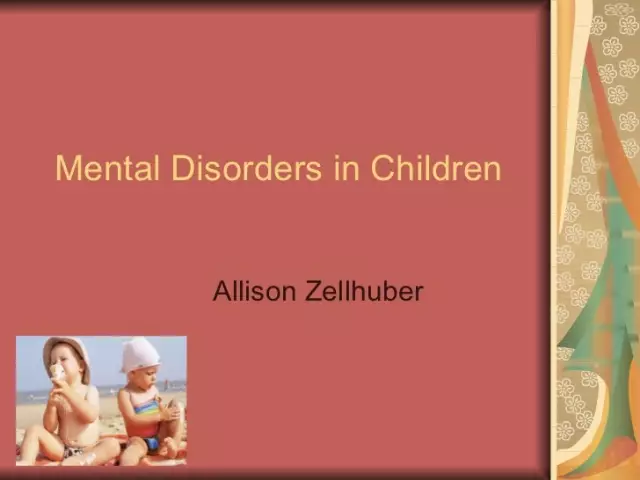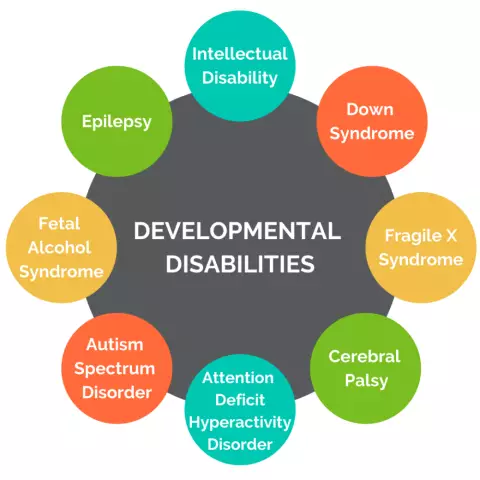- Author Rachel Wainwright wainwright@abchealthonline.com.
- Public 2023-12-15 07:39.
- Last modified 2025-11-02 20:14.
Emotional disorders in children

Of course, all loving parents care about the health of their kids. However, mothers and fathers often pay attention exclusively to the physical development of the child, for some reason not giving due care to the emotional state of the baby. But emotions play an important role in a person's life. Emotions appear from the first days of a baby's life, with their help the child communicates with his parents, making it clear that he is upset, in pain or feels good.
As the child develops, his emotions also undergo changes and it is important during this period to prevent emotional disturbances in children. The kid learns not only to speak, walk or run, but also to feel. From simple emotions that he experiences in infancy, he moves on to a more complex sensory perception, begins to get acquainted with the entire emotional palette.
As they grow older, the child not only informs the parents that he is experiencing discomfort because he is hungry or his stomach hurts, but also begins to show more complex emotions.
Like an adult, a toddler learns to be happy, delighted, sad, surprised, or angry. True, the main difference between a five-year-old child and a one-year-old baby is not only that he knows how to feel "broadly", but also that he knows how to control his emotions.
In modern society, specialists are increasingly trying to draw attention to such a serious problem as emotional disorders in children.
Causes and consequences of emotional disorders in children
According to medical statistics, 50% of cases of emotional disorders in children who graduated from primary school are expressed in the development of nervous diseases. This is a very alarming result, especially considering the fact that we are talking about nervous diseases of children who have not even reached the age of 16.
Child psychologists believe that the main causes of emotional disturbances in children can be:
- diseases and stresses transferred in childhood;
- features of the physical and psycho-emotional development of the child, including delay, impairment or lag in intellectual development;
- the microclimate in the family, as well as the peculiarities of upbringing;
- social and living conditions of the child, his close environment.
Emotional disorders in children can be caused by other factors. For example, films that he watches or computer games that he plays can cause psychological trauma to a child's body. Emotional disorders in children are manifested most often at critical periods of development.
A striking example of such mentally unstable behavior is the so-called "transitional age". Young people always rebel, but this is especially noticeable in adolescence, when a child begins to determine his desires and assesses his own capabilities.
The most common manifestations of emotional disorders in children are:
- general anxiety of the child, as well as the presence of fears and excessive fearfulness;
- emotional exhaustion;
- aggression, and sometimes for no reason;
- problems in communication and interaction with other children or adults;
- depression.
Correction of emotional volitional disorders in children

Before talking about methods of correcting emotional volitional disorders in children, it is worth defining this problem. The emotional-volitional sphere, or in other words, the psycho-emotional state of a person is the dynamics of the development of his feelings, as well as emotions. Therefore, emotional volitional disorders in children are nothing more than mental disorders.
When the emotional sphere is disturbed, children develop a feeling of severe anxiety or apathy, the mood becomes gloomy and the child closes in on himself, begins to show aggression or fall into depression. In order to improve the condition of a child suffering from emotional disorders, you should contact a specialized specialist. He, in turn, will begin individual or group work with the child, and will also tell the parents how to behave correctly in case of mental instability of the baby.
Psychoemotional disorders are amenable to successful treatment in case of early detection and a competent approach to their correction.
Here are some tips for parents facing emotional distress in children:
- When dealing with a traumatized child, try to remain absolutely calm and show that you are friendly;
- communicate with the child more often, ask him, empathize, in general, be interested in what he feels;
- play or do physical labor together, draw, pay more attention to the child;
- be sure to follow the children's daily routine;
- try not to expose the child to stress and unnecessary worries;
- be aware of what your child is watching, violence on the TV screen or in a computer game will only aggravate emotional disturbances;
- support the child, help build self-confidence.
A child psychologist will help to eliminate disturbances in the emotional sphere in children, who, with the help of special educational games, will explain to the child how to properly respond to emerging stressful situations and control his feelings. However, the participation of parents in the treatment of psychoemotional disorders of children cannot be replaced by anyone, since children trust their parents and, of course, take an example from them.
Therefore, if in the future you want to avoid the development of severe mental illness in a child, then immediately begin to take an active part in his treatment.
The decisive factor in the correction of psychoemotional disorders is attention from adults. Learn to pay more attention to your child, help him sort out feelings and emotions. You should not demand from the kid to stop worrying, but you should support him in any worries and help to understand difficult emotions. Patience, caring and unrestricted parental love will help keep your children mentally healthy.
Found a mistake in the text? Select it and press Ctrl + Enter.






